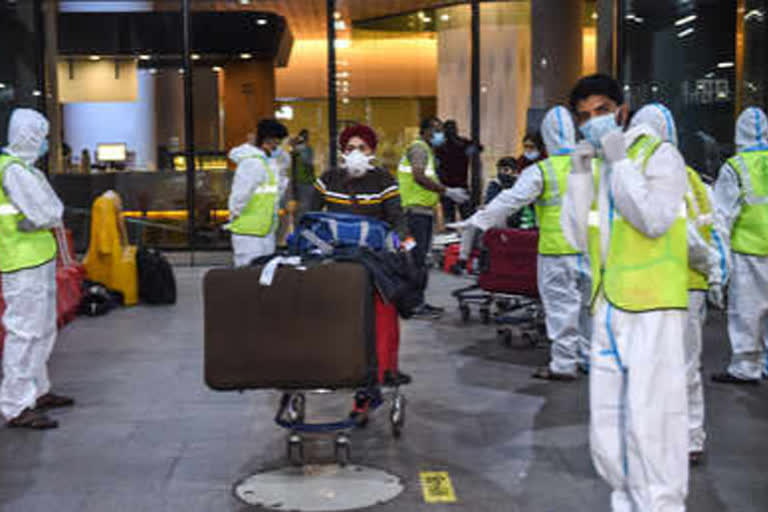New Delhi: A national task force on Covid-19 on Saturday said that it is critical to identify individuals infected with the UK strain of the COVID-19 virus and adequately contain them to prevent its transmission in India.
In a meeting convened by the task force, it discussed in detail on aspects related to the current national treatment protocol, testing strategy, and surveillance of SARS-CoV-2 along with the UK variant strain.
It was emphasised that since the UK variant strain is implicated to cause increased transmissibility of the virus "it is critical to detect persons infected with this strain."
The meeting of the task force was attended by Prof VK Paul (member Niti Aayog), Prof Balram Bhargava (DG-ICMR), Prof Randeep Guleria (Director-AIIMS), Directors from DCGI, DGHS, NCDC and other officials.
It was agreed in the meeting that there is no need to change the existing treatment protocol in view of mutations emerging in the strain. Further, since ICMR has always advocated the use of two or more gene assays for testing SARS-CoV-2, it is unlikely to miss infected cases using the current testing strategy.
Officials present in the meeting suggested that in addition to the existing surveillance strategies, it is critical to conduct enhanced genomic surveillance for SARS-CoV-2 especially in incoming passengers from the UK.
"Besides, it will also critical to conduct genome sequencing in samples where there is a dropout of the S gene in lab diagnosis, proven case of a re-infection etc. Routine genomic surveillance of SARS-CoV-2 from representatives samples all across the samples needs to be a continuous a d well-planned activity," it was pointed out in the meeting.
Also Read: Immunity against Covid reinfection lasts 6 months: Study
Officials from National Centre for Disease Control (NCDC) said that the department has taken cognizance of the reports of virus mutation and accordingly a strategy has been put under place to detect and contain the mutant variant.
It may be mentioned here that the task force on Covid19 was set up under the co-chairmanship Prof VK Paul and Prof Balram Bhargava to discuss evidence-based modifications in testing, treatment and surveillance strategies for SARS-CoV-2.
The UK variant strain has 14 non-synonymous (amino acid altering) mutations, 6 synonymous (non-amino-acid altering), and 3 deletions.
Eight mutations are present in the Spike (S) gene which carries the binding site (Receptor Binding Domain) of the ACE2 receptors, which are at the point of entry of the virus into the human respiratory cells.
Meanwhile, the Oxford Covid19 vaccine candidate COVISHIELD is likely to get the emergency use authorisation from India's drug regulator, DCGI. Serum Institute of India (SII) which is conducting the phase III trial of the Oxford vaccine has also submitted additional data required by DCGI last week.
If sources in the government are to be believed, DCGI is looking for UK drug regulator's nod for COVISHIELD after which the subject expert committee of DCGI will take a call on its decision over giving emergency use authorisation.
India plans to start vaccination in January.



